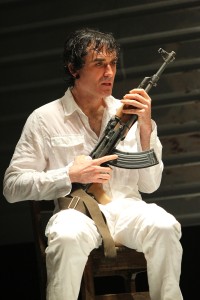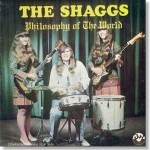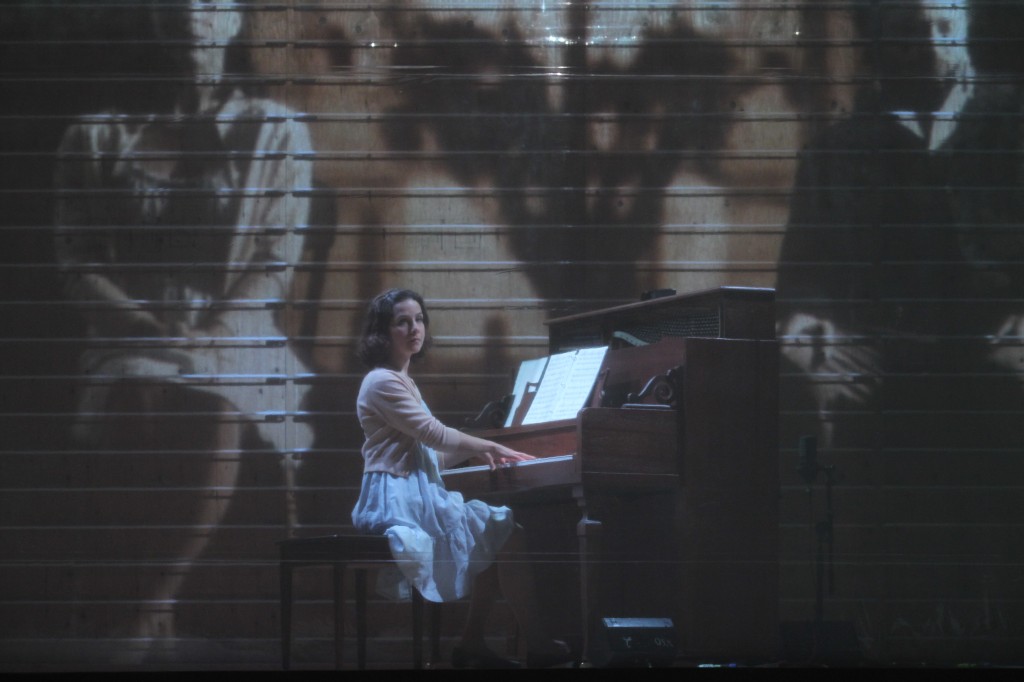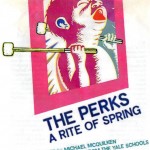Connecticut Stories on Stage Playwriting Competition—Staged Readings of the Winning Plays
Closed. Presented by Connecticut Heritage Productions April 17 at the Arts Hall, Educational Center for the Arts, 55 Audubon St., New Haven. Directed by Kenneth Heaton and Peter Loffredo. Stage Manager/Lighting Designer: Seth Harris. Producer: Michael Eck.
Rosary Peas by Michael Burgan. Won in the Full-Length category. Read by Henry Ayres-Brown (Paul), Bunni Barresi (Mom), Ingrid Shaeffer (Allie, James Luse (Carl), arolyn Ladd (Shirley) and Carolyn Kirsch (Wilma), Peter Loffredo (Stage Directions).
Sunset by William McGovern. Won in the One-Act category. Read by James Luse (Dan), Bunni Barresi (Margaret), Carolyn Kirsch (angie), Javis Arnold (Usher, Bartender), Peter Loffredo (Man, Homeless Man, Stage Directions).
Drugs, War and Nine by Elizabeth Appel. Won in the Ten-Minute Play category. Read by Carolyn Ladd (Carol), Peter Loffredo (Doug) Javis Arnold (Bobby), James Luse (Stage Directions).
It would be a disservice to review these plays based on readings; that’s just not appropriate. They won their prizes, and may one day get the full productions they deserve. But there’s lots else to discuss.
Years ago, I wrote a film feature for the New Haven Advocate positing that movies made in Connecticut tended to be about broken relationships, crushing self-delusions and blithe dismissals of the suffering of others.
If you were to read too deeply into the three plays which were given staged readings Sunday afternoon as a culmination of the Connecticut Stories on Stage Playwriting Competition, you might add the following to this common artistic sense of what it means to live in Connecticut: despair, deception, anti-social behavior, and murder. Any characters who acted out of kindness and selflessness were negated by those strictly motivated by self-interest and massive egos.
This intimate afternoon brought me back—not just to the Connecticut environs in which these “Connecticut Stories on Stage” were set, but to the sense of community spirit which was once so much a part of small theater in this state. I’ve known some of the performers in these pieces for 25 years, from academic as well as community-theater climes.
It reconnected me, for instance with Kenneth Heaton, whom I knew when he was a student in the playwriting program at the Yale School of Drama over a decade ago. He conceived of a Connecticut-centered playwriting contest after settling in the state and teaching at Central Connecticut State University. Ironically, since starting Connecticut Stories on Stage, Heaton has moved to New York. Luckily for the competition’s rooted relevance, Heaton created the competition in league with the well-established and fervently community conscious Connecticut Heritage Productions.
These were punchy plays rooted in uncomfortable realities. While they stuck to the conventional staged-reading arrangements of a line of folding chairs, co-directors Heaton and Peter Loffredo used that model to subtly and strongly enforce the distances between some of the characters.
In community-based theater, which is so often rosy and escapist, a clear vision of distance and discord is to be celebrated. Congratulation to the competition winners, but also to the competition itself for having its feet on the muddier patches of the Connecticut ground.





